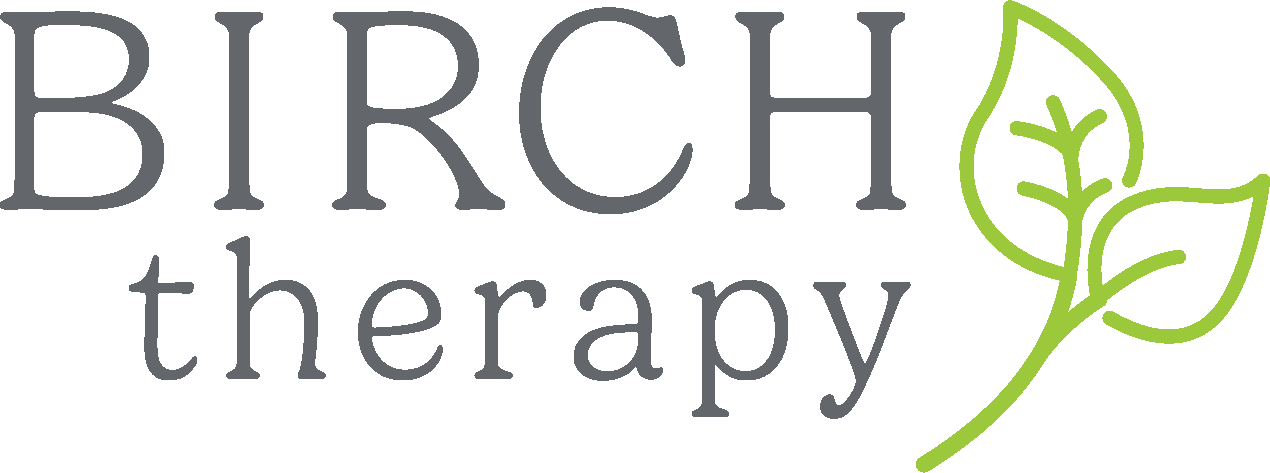Family Therapy in Raleigh, NC
Family Counseling in Raleigh, Cary, Durham, Fuquay-Varina, and North Raleigh, NC
Understanding That Your Family Works As a System!
Families are both complicated and amazing! Therapists and counselors view families as systems—each member contributes to the family dynamic, interacting with others in specific patterns. When one family member changes, it impacts the rest of the system. This can either be positive or negative. In the context of Family Systems Theory, homeostasis refers to a family's natural tendency to maintain a stable and balanced state.
Why Family Therapy Can Help?
Families can become entrenched in roles and behaviors that once made sense, but may no longer serve them well. That's where we come in! Our therapists in Raleigh, NC can help families recognize patterns that are no longer beneficial and assist family members in meeting their individual needs. Family therapy isn’t about pointing fingers at who is right and who is wrong, its about healing the system itself.
Our Family Therapists Provide…
Our mental health therapists in North Carolina offer several parent & child modalities to meet the needs of your family, including:
FILIAL THERAPY
At some point, the family therapist may bring parents, siblings, or other family members into play therapy. This is known as filial therapy. It can help teach conflict resolution, promote healing, and improve family dynamics. Filial therapy provides caregivers (typically parents) with training in basic play therapy techniques so they can use these techniques with their own children. This modality originated as a group family program and was one of the first systemic family therapy interventions.
Founded on the belief parents can learn the necessary skills to become therapeutic agents in their children’s lives, filial therapy incorporates family members as the main agents of change, offering a unique outlook on the therapy process. Our trained filial therapist, Laurel Tobias, LCSW, educates primary caregivers in the method and then provide supervision and guidance as families begin to navigate and resolve challenges.
Child Parent Psychotherapy (CPP)
CPP is an intervention for children aged 0-6 who have experienced at least one traumatic event and/or are experiencing mental health, attachment, and/or behavior problems, including posttraumatic stress disorder. The primary goal of CPP is to strengthen the parent-child relationship which leads to improvement in the child’s emotional and behavioral functioning. Treatment begins with an extended assessment phase (mostly with the parent or caregiver) and then involves conjoint, play-based sessions with the child, caregiver, and therapist. Completion of CPP is based on mastery and improved functioning but typically takes 8-12 months of weekly therapy. Kate Bridgers, LPA, and Dakota Becker, LCSW, offer CPP in our Raleigh location.
Theraplay®
Theraplay is a dyadic child and family therapy that has been recognized by the Association of Play Therapy as one of the best psychotherapies for children. Developed over 50 years ago, and practiced around the world, Theraplay was developed for any professional working to support healthy child/caregiver attachment. Strong attachment between the child and the important adults in their life has long been believed to be the basis of lifelong good mental health as well as the mainstay of resilience in the face of adversity. Modern brain research and the field of neuroscience have shown that attachment is the way in which children come to understand, trust and thrive in their world (theraplay.org). Katheryn Burnett, LCMHCA, is trained in Theraplay, Level One, and offers Theraplay in our Raleigh location.
Parent-Child Interaction Therapy (PCIT)
PCIT is an evidence-based treatment for young children with behavioral problems. PCIT is conducted through "coaching" sessions during which you and your child are in a playroom while the family therapist is in an observation room watching you interact with your child through a one-way mirror and/or live video feed. You wear a "bug-in-the-ear" device through which the therapist provides in-the-moment coaching on skills you are learning to manage your child's behavior (pcit.org). Laurel Tobias, LCSW, is currently fulfilling PCIT training and will be offering it in our Durham and Raleigh locations.
Emotion Focused Family Therapy (EFFT)
Emotionally Focused Family Therapy ― follows the principles and practices of Emotionally Focused Therapy to restore connection and promote resilience in family relationships. The principle goal of EFFT is to re-establish more secure family patterns where attachment and caregiving responses are effective and emotional bonds are repaired. These resources inform a network of security that provides the flexibility and closeness necessary for families to promote individual growth and meaningful relationships across generations.
EFFT Process
The EFFT process of change in EFFT focuses on stabilizing a family’s negative interaction pattern, restructuring parent and child interactions, and consolidating the felt security gained through these new patterns of connection. Following principles of attachment science, the EFT therapist guides the family to new patterns of parental availability, responsiveness and coherent attachment communications as they face developmental change and life challenges. In EFFT, the focus is on addressing blocks in parental caregiving responses and understanding the child or adolescent’s behavior
Attachment in EFFT
in terms of attachment needs or fears. These blocks result from constrained, stuck responses to mis-attunement and injuries in family relationships. The EFFT therapist tracks the generational influences impacting these blocks and works through rigid patterns that disrupt attachment communication between parents, and siblings and between parent and child. Work with parents focuses on the building of a coherent parenting team.
The process of EFFT often moves quickly as family members become more responsive, accessible, and engaged with previously unacknowledged attachment-related emotions and needs. Goals include:
Accessing and expanding awareness of unacknowledged feelings associated with the family’s negative pattern.
Reframing family distress and child problems within relation blocks reinforces this distress.
Promoting awareness and access to underlying caregiving intentions and disowned attachment-related needs.
Facilitating the sharing of unmet attachment needs and effective caregiving responses.
Supportive Parenting for Anxious Childhood Emotions (SPACE)
SPACE stands for Supportive Parenting for Anxious Childhood Emotions and is a parent-based treatment program for children and adolescents with anxiety, OCD, and related problems. SPACE was developed by Dr. Eli Lebowitz at the Yale Child Study Center and has been tested and found to be efficacious in randomized controlled clinical trials. SPACE aims to treat children and adolescents with anxiety disorders and obsessive-compulsive disorder. Although children do not have to attend SPACE sessions - they are the patients! When SPACE treatment is successful children feel less anxious and function better following treatment. Some of the main anxiety problems treated with SPACE include:
Separation anxiety
Social anxiety
Generalized anxiety
Fears and phobias
Panic disorder and Agoraphobia
Selective mutism
Obsessive-compulsive disorder
Parents Involvement in SPACE
Parents (and other caregivers) participate in SPACE treatment sessions. In most cases the child or adolescent does not need to attend the treatment sessions. Parents who participate in SPACE will learn skills and tools to help their child overcome anxiety, OCD or related problems. The treatment focuses on changes that parents can make to their own behavior, they do not need to make their child change. The two main changes that parents learn to make in SPACE treatment are to respond more supportively to their anxious child and to reduce the accommodations they have been making to the child symptoms. Laurel Tobias, LCSW, is currently offering it in our Durham and Raleigh locations.
Child- Parent Relationship Therapy (CPRT)
Child-Parent Relationship Therapy (CPRT) is designed for parents of children ages 2–10 who are experiencing social, emotional, and relational disorders. CPRT aims to strengthen the parent-child relationship. CPRT helps parents learn to respond more effectively to their children’s emotional and behavioral needs and to understand and accept their child. CPRT teaches parents CCPT skills to help them connect with their children through play and child-centered principles, including unconditional acceptance, recognizing and reflecting the child’s feelings, respect for the child’s ability to solve problems, and establishing a feeling of permissiveness in the relationship. Briana Joseph, LCSW, offers this at the North Raleigh location.
Supporting Families Through Separation and Divorce
The dissolution of a marriage is a profoundly challenging experience, especially when children are involved. Their known family structure changes, leading to uncertainty and emotional turmoil. Balancing your grief while supporting your child's feelings can be daunting.
Our family therapists offer support and strategies to navigate this transition, including:
Effective Communication: Guidance on discussing divorce with your children in an age-appropriate manner, ensuring they feel informed and secure.
Developmentally Appropriate Expectations: Understanding typical reactions based on your child's age helps in setting realistic expectations and providing appropriate support.
Co-Parenting Concerns: Assistance in establishing respectful and consistent communication with your co-parent, fostering a stable environment for your children.
Remember, there's no perfect way to navigate divorce. It's acceptable for children to understand, at their level, that their parents' relationship wasn't working. Maintaining trust and a sense of security during this transition is crucial. Encouraging children to express their emotions, ask questions and share concerns can foster resilience and confidence in adapting to the new family dynamic.
By addressing these aspects thoughtfully, you can support your child's well-being during this significant life change. As additional support through this time, individual therapy for children or therapy for teens may be helpful or group therapy options may be great considerations. Speak to a counselor or therapist for additional support for your family.
Why Choose Our Team of Family Therapists?
Our team of seasoned, skilled, and compassionate family therapists specializes in family therapy in Raleigh, NC for you and your child. Our family therapists believe in collaborating with you and your family. We want to create a warm and welcoming environment where the family system is supported.
We look forward to partnering with you.
Get Started with Family Therapy in Raleigh, Durham, Cary, Fuquay-Varina, or North Raleigh Today!
If you are ready to get started with family therapy in North Carolina, our team of family therapists are ready to connect with you. To get started, follow these steps:
Start connecting and healing as a family unit!
Other Services Offered at Birch Therapy in North Carolina
At Birch Therapy in Raleigh, NC, we offer more than just family therapy. In addition to our family therapy services, we also provide counseling for teens, trauma therapy, therapy for children, Parent-Child Interaction Therapy (PCIT), Parent Coaching, and parent groups/classes. We offer psychological testing for ADHD, Autism Spectrum Disorders, mood disorders, anxiety disorders (including PTSD), and more. Our services also include neurodivergent affirming therapy, a social skills group for kids, the Girl C.O.D.E program for girls in grades 3-5, community workshops, clinical supervision, the Circle of Security® Classroom, and evidence-based therapies such as Trauma-Focused Cognitive Behavioral Therapy (TF-CBT) and EMDR. At Birch Therapy, we are committed to supporting children, teens, and parents with a variety of therapeutic options tailored to their needs. We hope to come alongside you and your family, providing the support you need every step of the way.



